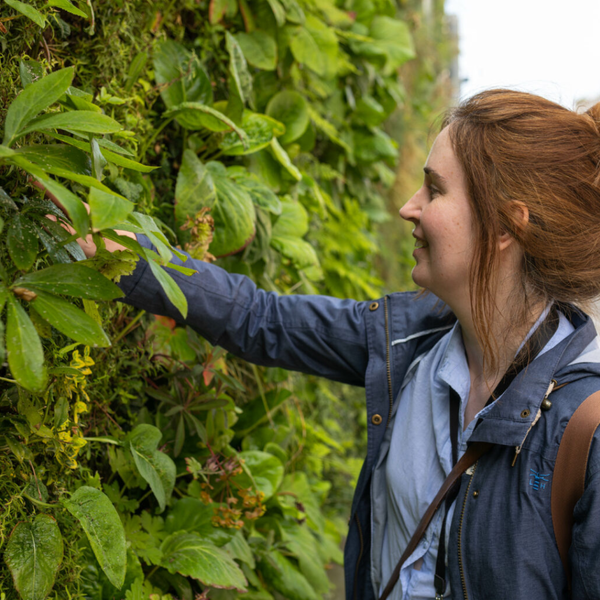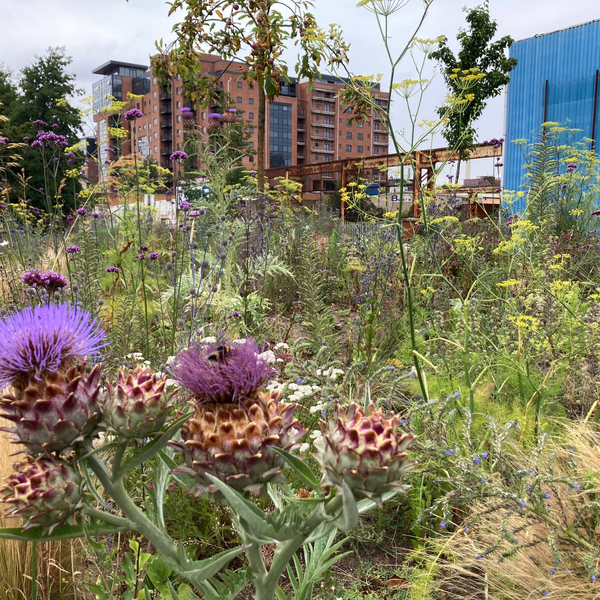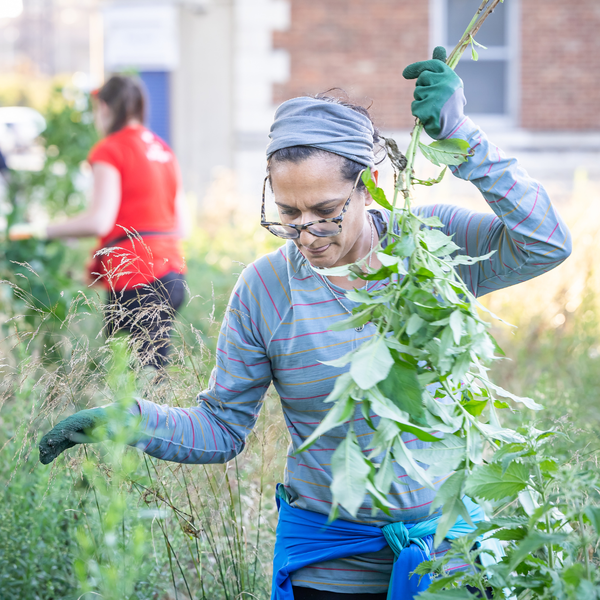Project showcase
Urban GreenUP, Liverpool, for Liverpool City Council, Mersey Forest and University of Liverpool, with reShaped
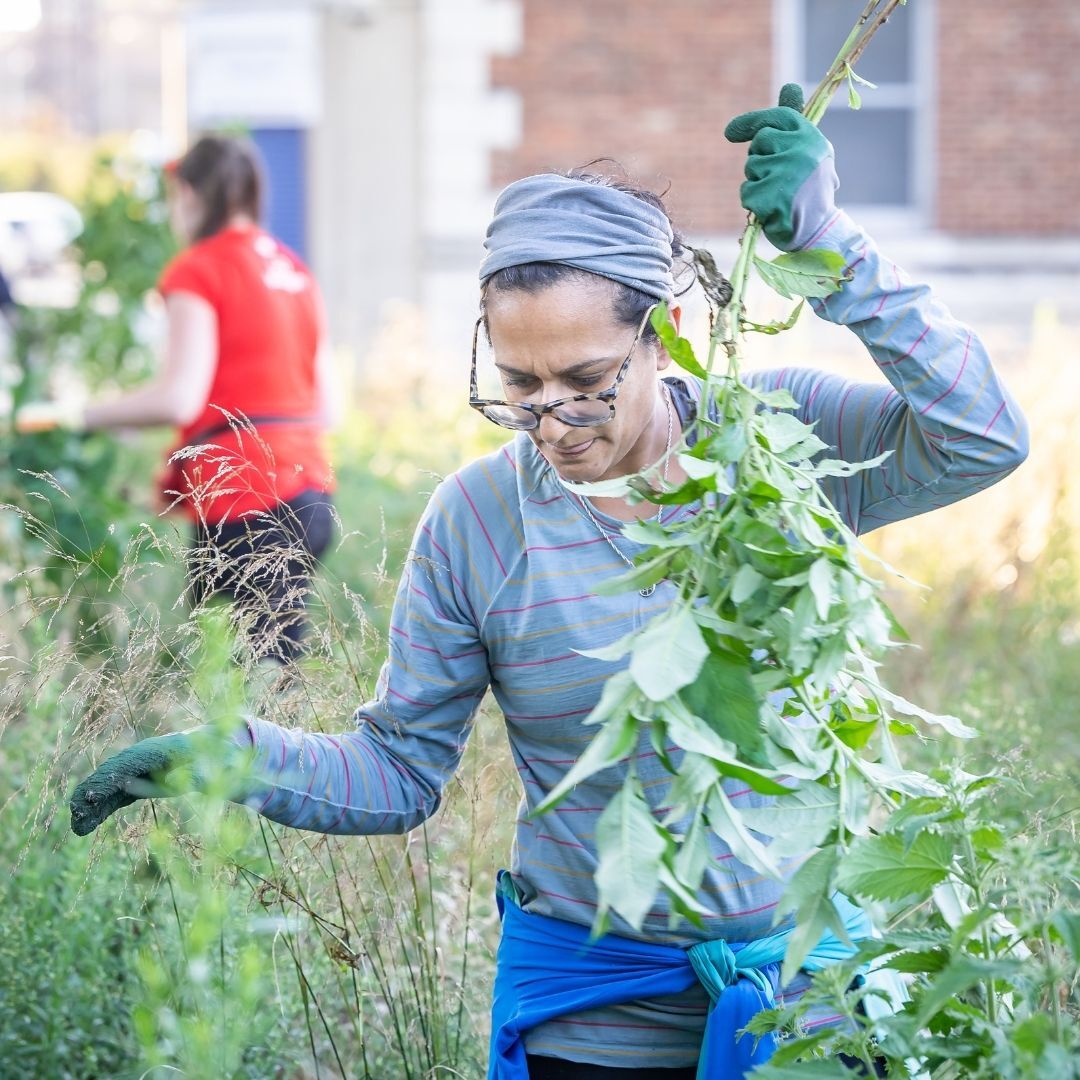
Across 44 different postcodes and sites, GreenUP has enhanced access to local greenspace for 500,000 residents in Liverpool. The project has planted 100,000 trees and shrubs, and created accessible walking routes, increasing walking by 13.9% and footfall for local businesses. The interventions have increased pollinators by 928%, reduced air surface temperatures by 7.2C degrees and diverted 5,200,000 litres of water from sewers, reducing flooding.
Who is on the project team? (designer, consultants, etc)
Amey, ANS Global, BCA Landscape, Biomatrix Water Solutions, Biotecture, Environmental Protection Group, Mersey Forest, Flavia Goldsworthy, reShaped, Scotscape, Something and Son with Jake McConville, Streetscene Services, STRI Group and WSP
Describe the context of this initiative or project, its neighbourhood and the community it serves?
Liverpool’s Urban GreenUP project is part of a worldwide project to develop, implement and monitor the impact of retrofitting Nature-based Solutions (NbBS) into our cities. The results and learning from the project were shared between participating cities and with anyone interested via a free, online open-source portal. www.urbangreenup.eu/resources/ Liverpool selected its demonstrator sites using GIS models. These models mapped areas of the city that are most vulnerable to the future impacts of climate change, vulnerable communities most at risk, and locations where NbS could improve active and wildlife travel routes. Demonstrator sites included the city centre, commercial district, and historic waterways through South Liverpool’s parks. The interventions in the city centre and commercial district sought to improve the environmental quality of life and create climate resilience for vulnerable communities in nature-depleted areas. These areas experience high levels of air pollution (above WHO guidelines), elevated risks of surface water flooding, a lack of quality greenspace, and multiple indices of deprivation, resulting in below-average life expectancy. Such interventions are critical as vulnerable residents cannot withstand the financial or health impacts of climate change. The waterways interventions aimed to reduce flooding, improve water quality, habitat value and prevent annual algal blooms that kill wildlife. Retrofit sites were chosen because they were typical of urban city centres and represented ‘the worst of the worst sites’ and provided an opportunity to demonstrate maximum impact. Sites included highway grass verges, 60s shopping centres and car parks, concrete embankments, saltwater docks and grey flooded pavements and footpaths.
Describe the intervention you’ve made, including its purpose and motivation? How it will contribute to climate resilience.
URBAN GreenUP is a pioneering research and innovation project that developed, implemented and monitored the impact of retrofitting; nature-based solutions (NbS) in nature-depleted areas of Liverpool. The results transformed the intervention sites and provided environmental, wellbeing and wildlife benefits to local communities while the legacy demonstrator projects shared the learning and provided a blueprint to extend and replicate NbS worldwide. Demonstrator sites and NbS interventions were selected using an intelligence-based approach, with GIS models highlighting city areas most at risk from climate change, associated climate change risks and the most suitable ke NbS to alleviate impacts and improve city resilience. The interventions were delivered and monitored in partnership between Liverpool City Council (LCC), Mersey Forest, University of Liverpool and a multitude of organizations, and community groups to ensure long-term success. They included retrofitting streets, parks, docks, roofs, shopping centres, and car parks with NbS for water quality improvement, flooding, shading, cooling, pollinators, and wildlife habitats. The project also installed floating habitat islands in ponds and docks, transformed grass verges and wasteland into pollinator corridors, created a food bank allotment, and ran public engagement activities including forest bathing pods, wellbeing activities, and volunteer planting. The learning gained from retrofitting climate resilience into cities is being used to develop new LCC policies and is available open-source via an online portal. www.urbangreenup.eu/resources/ The portal includes NbS selection tools for decision-makers and funders, an evidence base of the environmental, social and economic benefits of NbS, and published scientific research papers on NbS.
Explain the environmental and social impact of the project?
GreenUP has transformed tired overheating buildings, monoculture grass verges, flooded grey pavements and saltwater docks into a climate-resilient network of habitat and active travel corridors through the most nature-depleted and climate-vulnerable areas of the city. Interventions have increased pollinators by 928%, provided shading, reduced urban heat island and air surface temperatures by 7.2C degrees and diverted 5,200,000 litres of water from sewers, reducing flooding on Pitt Street and active travel routes. Air and water quality have been enhanced with reductions of 8.4% NO2, 15.3% particulate matter and reductions in heavy metals, nutrients and suspended solids. Tree planting has sequestered 32.8tCO2e, and other land changes have sequestered 20.1tCO2e. GreenUP has inspired changes in landscape management practices, including low carbon, no herbicide techniques that promote biodiversity and halved the embodied and operational carbon of planting schemes.. Socially,, GreenUP has enhanced access to local greenspace for 500,000 residents, created attractive accessible walking routes and increased walking by 13.9% . Increased walking and cleaner air have led to more active lifestyles, saving 26 lives annually. (GIVAL calculator). The community has taken ownership of pollinator plantings, with 70 residents volunteering annually. Macdonalds staff clear litter every day and local residents weed every 2 months. GreenUP, physical, education and mental health programmes have enhanced feelings of wellbeing and promoted a 30% increase in exercise amongst participants. The project increased footfall past local shops and 92% of business owners have recognised the benefit of GreenUP, planting. It also created 52 FTE tourism and land management jobs (GI VAL).
Gallery
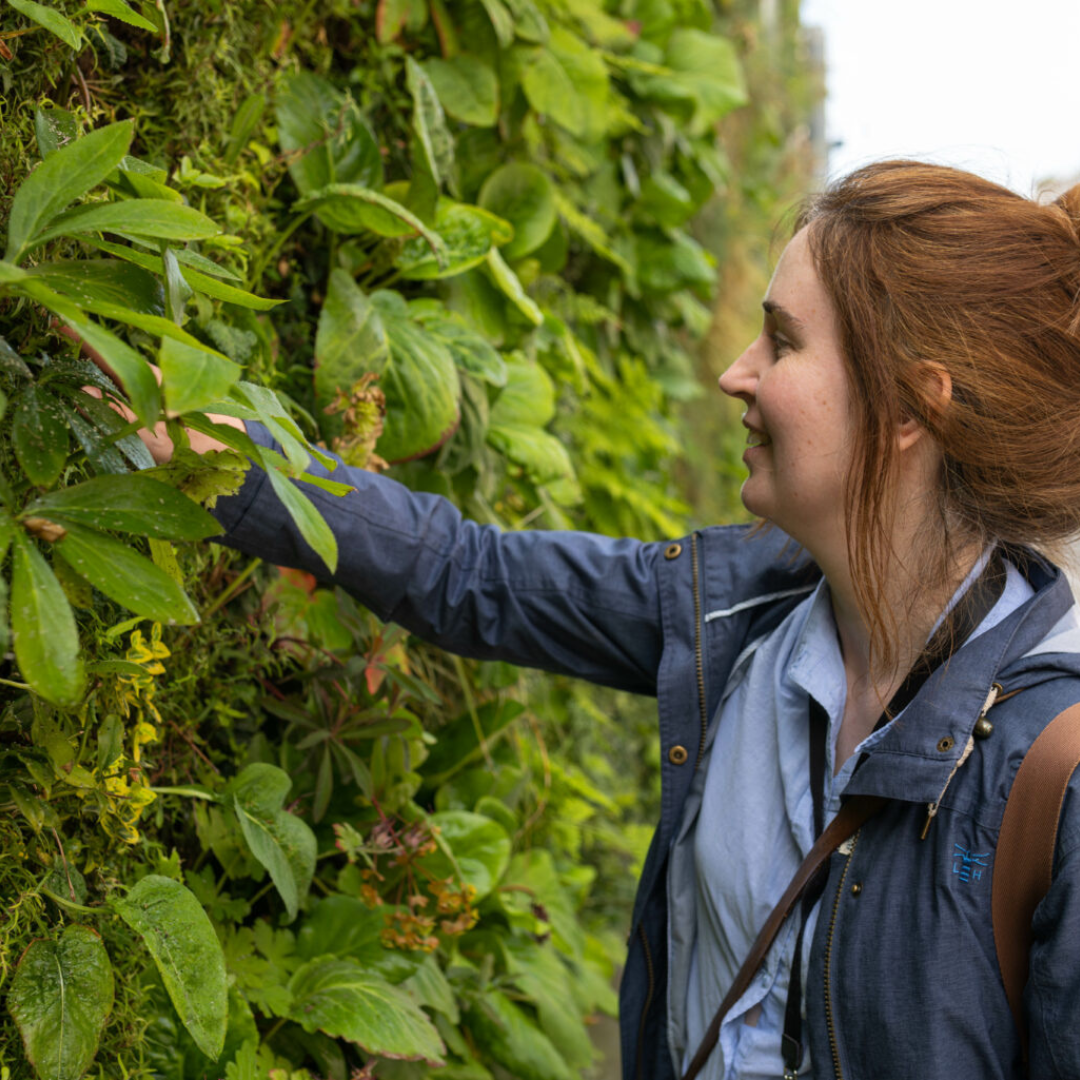
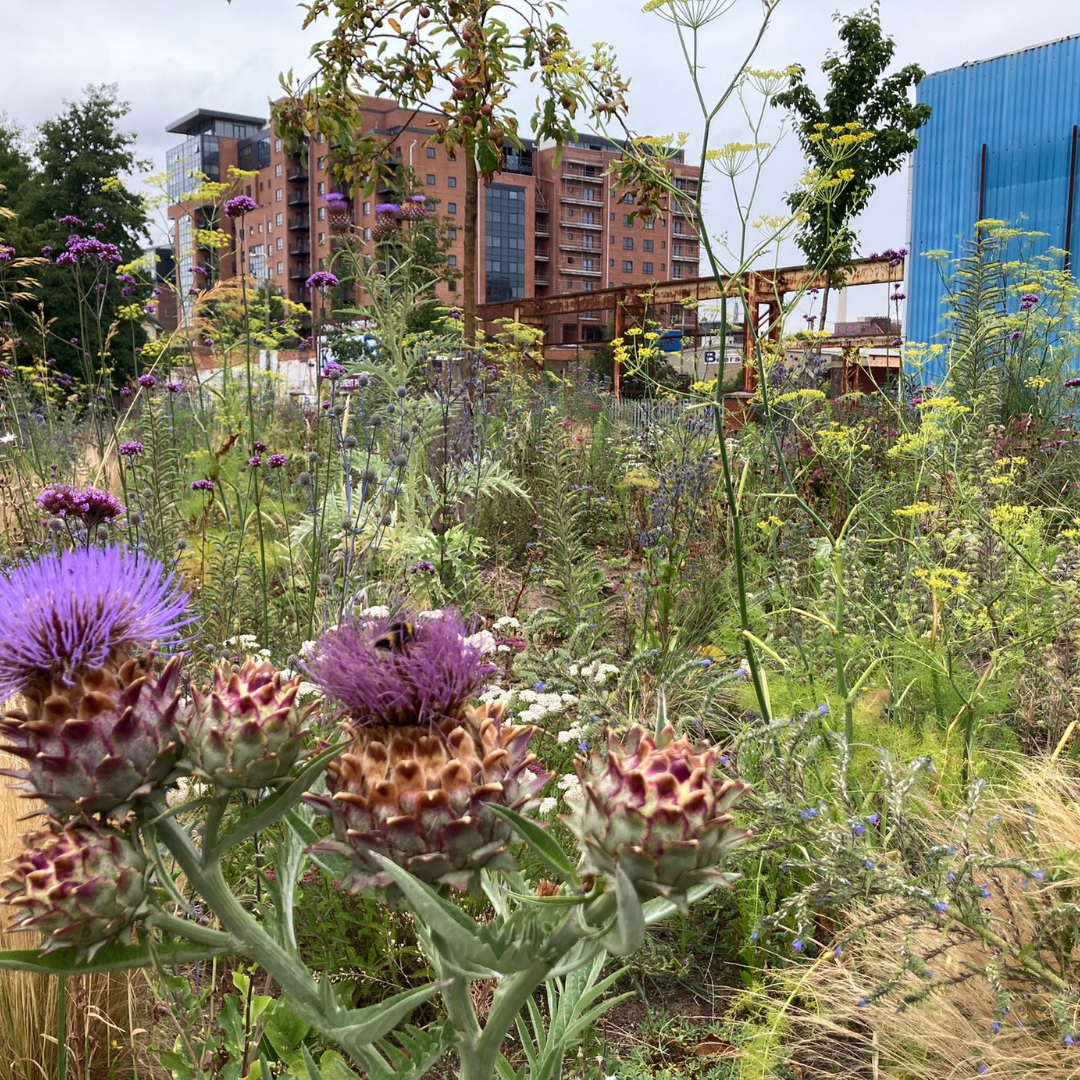
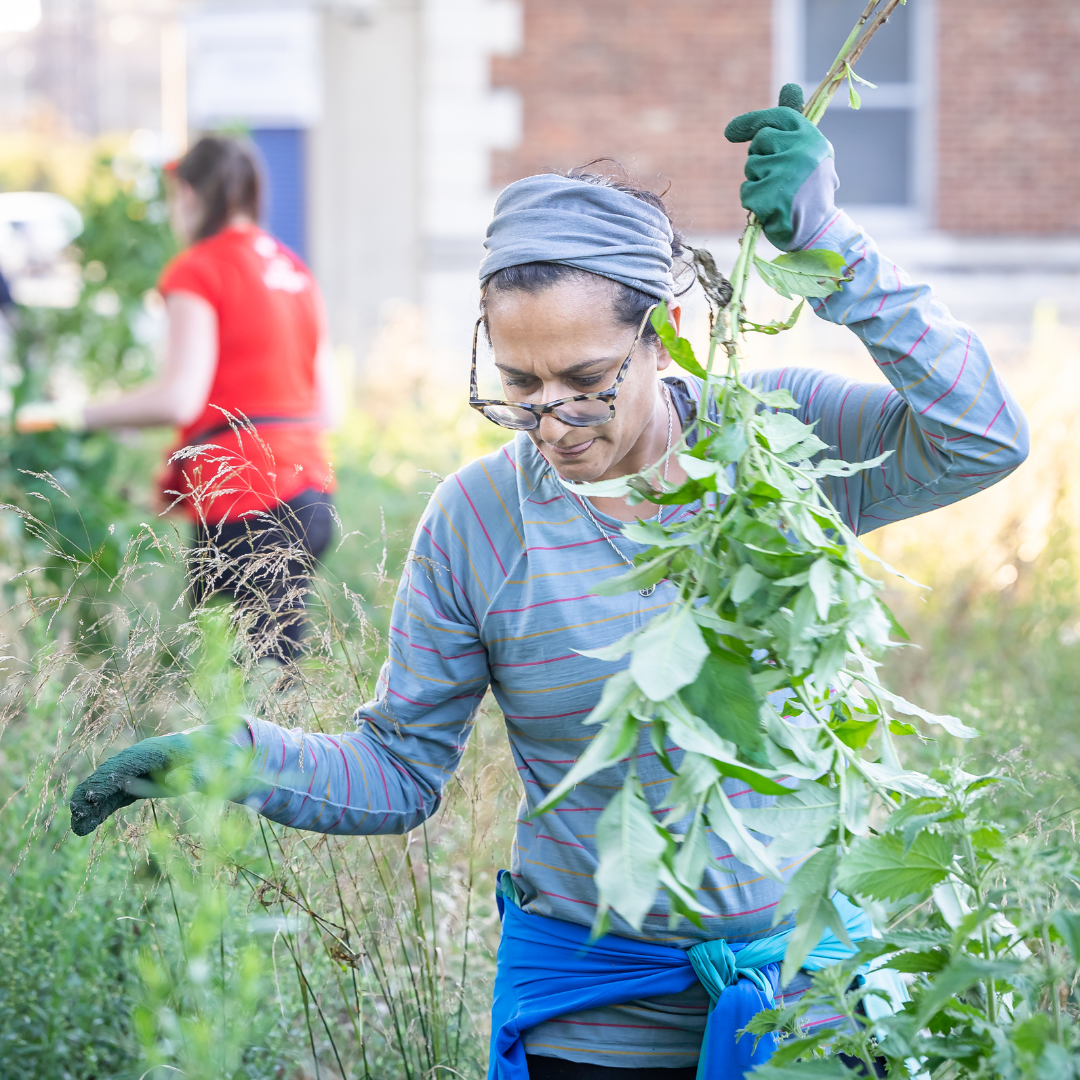
Festival of Pineapples
24-26 February 2026
Pineapples prize giving night
April
Pineapples at Festival of Place
10 June 2026
© The Pineapples - Tweak Ltd. 124 City Road, London, EC1V 2NX. Tel: 020 3326 7238
